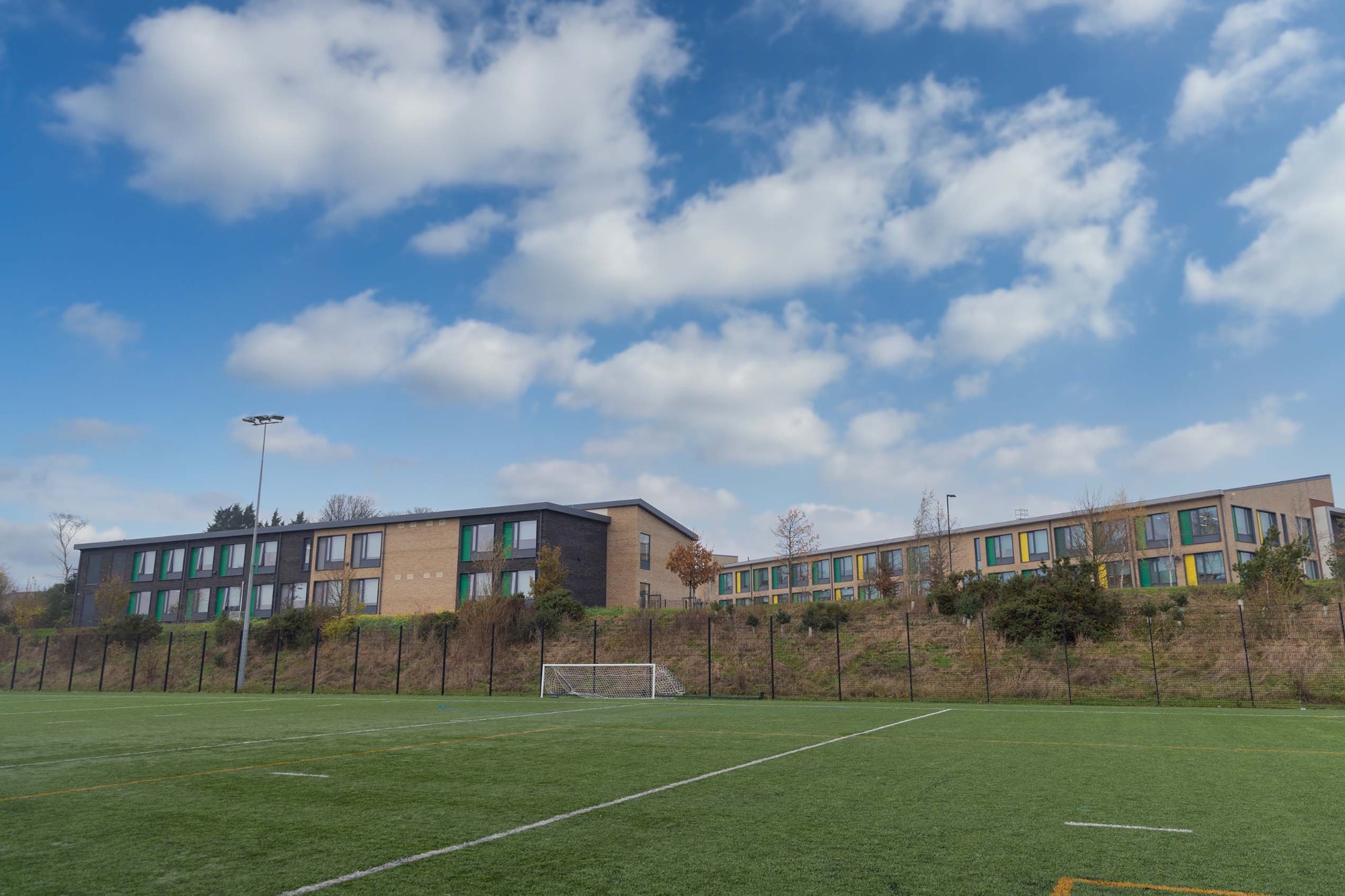.
Year 7
Autumn Term – GEOGRAPHY AND YOU AND GEOGRAPHICAL SKILLS
At the beginning of Year 7 students are introduced to geography and the strands and themes that make up the subject. They will learn what is meant by human, physical, and environmental geography and identify examples of each. They will locate their local area within Telford, the UK, Europe, and the world. Students will begin to understand some of the skills and qualities needed to become good geographers. They will recognise a variety of command words in geographical questions and learn how to answer them using the local area as examples. As a follow on to the first unit students will learn how to apply a variety of different geographical skills from maps and photographs to graphical and numerical skills to continue becoming the best geographers.
Spring Term – THE UK AND WEATHER AND CLIMATE
Students will gain an understanding of what is meant by the British Isles, the UK and Great Britain and identify them on a map. They will locate the main physical features of the UK and describe their key features. Students will identify groups of people who have migrated to the UK over time and why, patterns of population densities with reasons. Students will study geographical features of London, our capital city. Finally, will explain the UK’s links to the rest of the world, the Commonwealth, UN, and EU. Following this begin the next unit by identifying the differences between weather and climate. Students will study the major features of the UK’s climate and the factors that affect, then to conclude will link their geographical skills from unit 2 to draw and interpret climate graphs of two contrasting locations in the UK.
Summer Term – RIVERS AND COASTS
Students will study the various stages of the river, their main landforms and the processes used to create them. They will describe the ways in which rivers are used with a focus on the Thames Estuary and explain how river life may be harmed. Students will explain the causes of river flooding and how rivers can be managed. In the coastal unit will explain the processes, human and physical, that shape our coastlines. They will describe how we use the coast and explain conflicts over different land uses. Students will describe where coastal erosion is a problem and evaluate methods being used to protect our coastline.
Year 8
Autumn Term – ENVIRONMENTAL ISSUES
Students will start the term studying topical environmental issues such as those linked to endangered species, energy sources and global warming. They will explain why the environment needs protecting and how this can be done. Students will describe how the Earth’s temperatures have changed over time, give evidence, and explain the causes of global warming. They will describe the impacts it is having and suggest solutions to the problems.
Spring Term – ECOSYSTEMS AND AFRICA
Students will begin with identifying and locating the major ecosystems of the world. They will learn what the major features of an ecosystem are and how they interact. The focus of this unit is the Rainforest ecosystem and students will describe its climate, draw, and interpret a climate graph and describe the key geographical features of the rainforest. They will describe and explain how the vegetation, wildlife and people have adapted to living in the rainforest. Finally, students will study the causes and consequences of deforestation and what can be done to protect the rainforests for the future. In the Africa unit students will label a map of the continent to show a variety of geographical features and describe how European countries carved it up into each of the individual 54 countries Africa has today. They will locate and describe some of Africa’s key human and physical features including population issues, mountains, lakes, deserts, and ecosystems.
Summer Term – KENYA AND EXTREME WEATHER
Students will begin the unit by locating and labelling Kenya on a map and describe its position in relation to other countries and key geographical features. They will learn about its history and how it got to where it is today. Students will study the country’s climate, population distribution, tourism, wealth, poverty, and development. To finish the year students will study the causes and consequences of a variety of extreme weathers such as tropical storms, tornadoes, wildfires, drought, and monsoons.
year 9
Autumn Term – TECTONIC HAZARDS AND POPULATION
Students begin the year with a study of plate tectonics. They will describe where and explain how earthquakes and volcanoes occur. Students will study the key features of volcanoes and earthquakes and the impacts they have. They will explain how countries can monitor volcanoes and prepare themselves for both hazards. In the population unit students will learn how and why the world’s population has increased. They will describe the impacts this growth has had in different areas of the world. Students will study global population densities and learn where there are more/less people and why. They will focus on the key features of the UK’s population growth. Finally, the students will explain how we can combat growth issues by living more sustainably.
Spring Term – URBANISATION AND DEVELOPMENT ISSUES
Students will study the growth of towns and cities around the globe and the reasons for this. There is a focus on Manchester and student study its growth and regeneration. They link the growth and towns and cities to wealth and study the impacts in poorer countries of the world. Students will learn about what life is like living in the slums, why conditions are like they are and what can be done to improve this to make them more sustainable for the future. In the development unit students learn what is meant by the development of countries and what is being used to measure this. They will study the development gap between countries and recognise differences between more and less developed countries. Students will learn what is meant by globalisation and evaluate the impacts of this. They will study what is being done globally to end world poverty.
Summer Term – ASIA
Students will study the key geographical features of Asia. They will describe its location and relative size and compare its population with other continents. Students will identify and name key countries as well as locate their capital cities. They will also name and locate key physical features such as mountain ranges and deserts. Students will compare population distributions across Asia as well as study a range of biomes/ecosystems in the continent.
year 10
Autumn Term – LANDSCAPES AND PHYSICAL PROCESSES
Students begin their Eduqas A GCSE themes by identifying and locating the main distinctive landscapes in the UK. They will describe their key features; the impacts visitors bring to these landscapes and evaluate methods used to protect them. Students will identify and describe the main processes at work to create the landforms we find in the three stages of a river. They explain why river landforms change over time. Students repeat this for coastal landscapes. They will study the key features of drainage basins and explain the causes of river flooding. Students will evaluate current and future management strategies for both river and coastal areas.
Spring Term – RURAL-URBAN LINKS
In this theme students will identify the links between rural and urban areas. They will study the key issues associated with rural areas, both positive and negative. Students will learn about rural deprivation and poverty and the UK’s housing crisis then evaluate sustainable solutions to problems. They will study the causes and consequences of population change in the UK including changing birth rates, ageing populations, and migration. Students will learn how and why retailing in the UK is changing and what is being done to encourage shoppers back to the high street. Finally, they describe and explain global patterns of urbanisation and analyse the consequences of urbanisation in two contrasting cities.
Summer Term – TECTONIC HAZARDS
Students begin this theme by locating areas of the world where major earthquakes and volcanoes occur. They will explain how tectonic processes work together to create distinctive volcanic landscapes. Students will describe the impacts of both earthquakes, tsunamis, and volcanic eruptions and explain why certain groups of people are more vulnerable to tectonic hazards than others. Finally, they evaluate methods used to reduce the impacts of these hazards.
year 11
Autumn Term – WEATHER, CLIMATE AND ECOSYSTEMS
In this theme students will identify the evidence for climate change and explain the natural causes for this. They will study the causes, consequences, and solutions to global warming. Students will identify the causes, consequences, and responses to two extreme weather hazards – tropical storms and drought. They will study the UK’s climate and explain what causes it and identify different weather patterns associated with high- and low-pressure systems. Students then study ecosystems and biomes, beginning with identifying the global location of large-scale ecosystems. In more detail they will study two contrasting ecosystems, describing the processes operating within them, their biodiversity, how humans are using them and how they can be sustainably managed to ensure their futures.
Spring Term – DEVELOPMENT AND RESOURCES ISSUES AND SOCIAL DEVELOPMENT
Students will be reintroduced to development and the factors used to measure it. They will study the development gap and identify issue leading to this. Students will study the causes and consequences of uneven global development and the key drivers of globalisation such as trade, multinational companies, and tourism. They will evaluate responses to the uneven development such as international aid and fair trade. Students will study the issue of water management, the reasons for it and how water resources can be managed sustainably for the future. They end theme 6 studying the causes and consequences of regional development in India and the UK and how inequalities can be reduced. In the final theme of the year students identify challenges facing the development of sub-Saharan countries in Africa such as child labour, refugee movements and diseases such as malaria and how they can be tackled.
Summer Term – REVISION AND EXAMS
Students will revisit previous topics and prepare for the summer exams.
Extra-curricular Activities
Year 10 and Year 11 Intervention on Friday afternoons
S Drew, Subject Leader for Geography





